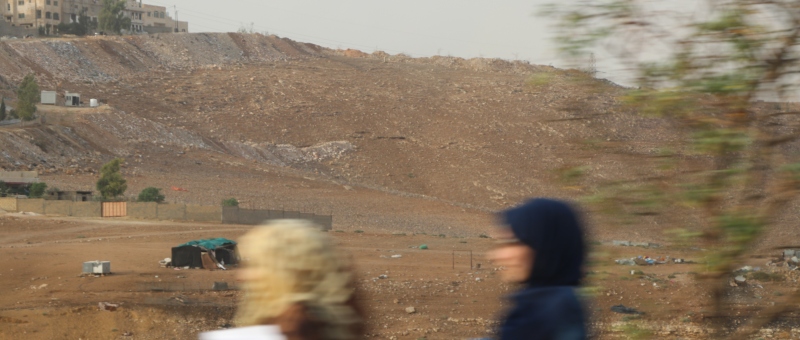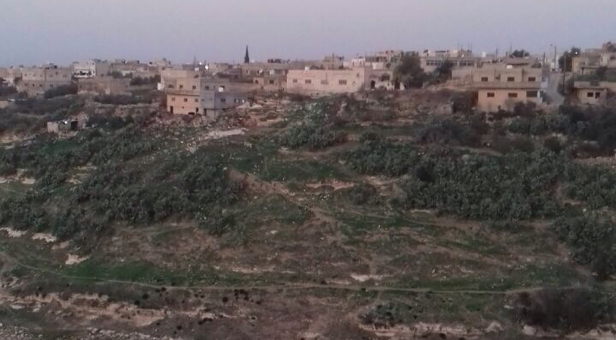On the 3 November 2022 the UCL-Migration Research Unit at the Department of Geography published a major report on ‘Development Approaches to Forced Displacement from Syria in Lebanon, Jordan and Iraq.’ The report, led by Prof. Elena Fiddian-Qasmiyeh, presents the findings of a state-of-the-art literature review of over 260 sources published between 2016–2021, synthesising existing…
Tag: Jordan
Listen: Refugee Hosts’ PI and Co-I respond to Government’s proposed ‘overhaul’ of UK’s asylum system
Refugee Hosts' PI, Prof. Elena Fiddian-Qasmiyeh and Co-I, Dr. Anna Rowlands have appeared on BBC 5 Live and LBC respectively, responding to the Governments' proposed overhaul of the UK's asylum system. In her interview on BBC 5 Live's Drive programme, Prof. Fiddian-Qasmiyeh discussed the UK's long history of preventing refugees from seeking asylum and of…
‘How Did it Feel to Ask those Questions?’ – An Email Exchange about Experiencing Research on Displacement.
In this post Hanna Schneider and her colleague Israa Sadder share an email exchange in which they discuss conducting research with Syrian refugees living in Jordan. The exchange describes the relationships developed both between researchers and intermediaries, and between researchers, intermediaries and their interlocutors. These research relationships raise multiple questions regarding how working as an…
Religion and Social Justice for Refugees: Executive Summary
The Refugee Hosts project recently launched a new co-authored report titled “Religion and Social Justice for Refugees: Insights from Cameroon, Greece, Jordan, Lebanon, Malaysia and Mexico”. This report identifies and examines the roles that faith plays in supporting social justice for refugees, situating the Refugee Hosts research in Lebanon and Jordan into conversation with research…
Models for Refugee Governance – Legal, political and institutional responses in Turkey, Lebanon and Jordan.
This blog post is an extract from Zeynep Sahin’s book ‘Refugee Governance, State and Politics in the Middle East’ published in December 2018. The book examines the patterns of legal, political and institutional responses to large-scale Syrian forced migration and how Turkey, Jordan and Lebanon, three of the world’s top refugee hosting countries, responded to…
“Who pays you?” Guilt and reservations in producing policy relevant research on refugees
‘Have I been “staring too hard” at my participants’ displacement, neglecting other aspects of their lives?’ In this blog post Wen-Yu Wu reflects on some of the ethical dilemmas and feelings of guilt experienced during her research with displaced Syrian students in Lebanon and Jordan. As a recipient of a ‘Global Challenges’ Scholarship from the…
Sustaining protracted displacements: A brief history of labor policy for Jordan’s refugees
This piece problematizes dominant conceptualisations of refugees in Jordan both as passive victims dependent on aid and as migrants who are ‘interchangeable’ within the Jordanian labour market. Specifically, Aaron Steinberg examines and problematizes the impact of the Jordan Compact, an international agreement ostensibly providing paths to employment for Syrian refugees in Jordan. However, as Steinberg…
Shadows and Echoes in/of Displacement
Shadows and Echoes in/of Displacement: Temporalities, spatialities and materialities of displacement by Prof. Elena Fiddian-Qasmiyeh, Refugee Hosts In line with our project's Spaces and Places not Faces approach to representation, a key question arising in Refugee Hosts is how we can represent, and conceptualise, the 'field-sites' where we are conducting research. Through diverse media -…
Drawing the Camp: Graphic Essay of Community Organising, Local Aid and ‘Refugee Humanitarianism’ in Irbid Refugee Camp
Displaced communities - whether long-time residents of camps and urban areas, or newly arrived refugees - are also often hosts, offering support to fellow refugees through community-led initiatives, or simple acts of everyday hospitality. This 'refugee-refugee humanitarianism' disrupts mainstream humanitarian narratives, which typically frame displaced peoples as passive recipients of aid. In order to challenge…
Mobility, Hope and the ‘Appropriation’ of Space: Reflections from a PhotoVoice Project
Typically, photographs of and about displaced peoples focus on individual suffering victims, acts of individualised resilience, or tropes that resonate with the wider genre of humanitarian narratives. As a result, the Refugee Hosts project has adopted what Dr Elena Fiddian-Qasmiyeh has termed a "Spaces and Places, Not Faces" approach to refugee-photography. As Michelle Lokot explores in…










You must be logged in to post a comment.